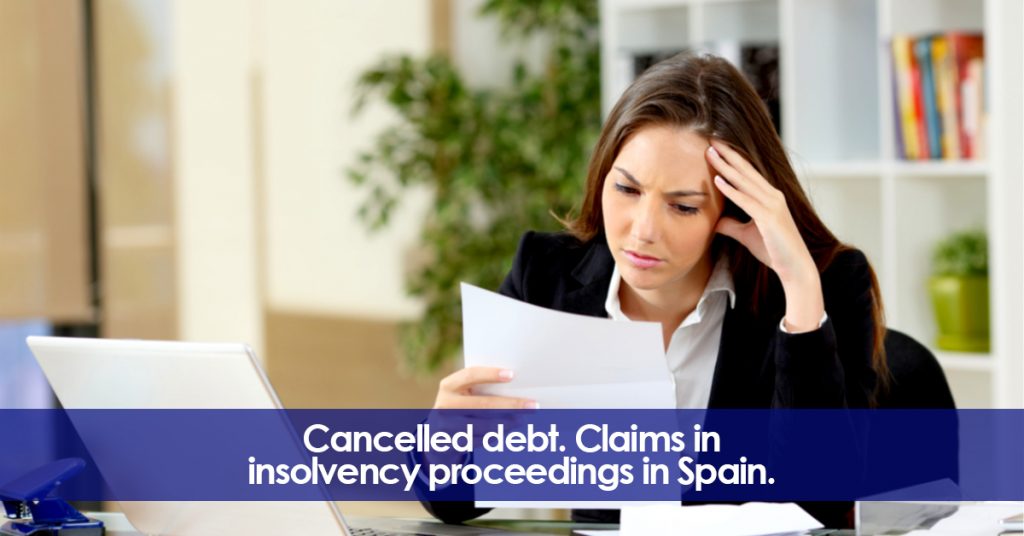WE have already talked in previous articles about the possibility that exists in Spain since 2015 to cancel debts through the Second Chance Law. In this article we will resolve the usual doubts of our clients regarding the cancelled debt by means of the Second Chance Law.
What happens to the cancelled debt? Is the debt cancelled forever?
Indeed, cancelled debts, once the five-year revocation period has passed, will be cancelled forever.
As we discussed in the previous article, when we talk about cancelled debts, legally we mean the unpaid debts as per the Benefit of Exoneration of Unsatisfied Liabilities or BEPI.
There are different ways to cancel debts through the Second Chance Law. Regardless of the way it is done, once five years have passed without the benefit being revoked, no one can claim for these debts.
This is established in the Insolvency Spanish Act, which states that there will be no appeal against the resolution of the insolvency judge in which the debt is definitively exonerated.
Can the debts be claimed again? If so, on what occasions?
Creditors in insolvency proceedings may only claim debts back in the cases expressly determined in the Second Chance Law. Thus, the bankruptcy judge may be asked to revoke the granting of the exoneration if, during the five years following its granting, it is found that the debtor has concealed assets or income that could be paid in the bankruptcy.
In any case, if the assets were unattachable (eg salary not exceeding the minimum wage or the tools necessary for the exercise of the profession, etc), the creditor could not oppose the granting of the discharge or benefit.
If the benefit or discharge has been granted on the basis of a payment plan, revocation of the grant of discharge could also be requested, in addition to the above ground, on the following grounds:
– Where the debtor fails to comply with the payment plan.
– In the event that the debtor improves his financial situation and is able to pay all claims, without detriment to the maintenance obligation. For example, when a gift or inheritance has been received.
– In the event that the debtor incurred in a cause that would have prevented the granting of the benefit due to the lack of the requirements to be a bona fide debtor.
Conclusion
In conclusion, after the final judicial decision in which the debt is exonerated and five years have passed, you cannot be claimed as a debtor for the outstanding money or debts. If your situation is that, if you are a creditor or debtor in an insolvency proceeding and you have more doubts related to this, please contact us.
The information provided in this article is not intended to be legal advice, it merely conveys information related to legal issues.
Carlos Baos (Lawyer)
White & Baos
Tel: +34 966 426 185
E-mail: info@white-baos.com
White & Baos 2022 All Rights Reserved.
